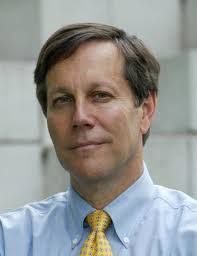Nib #66 Ten Poems Speechwriters Should Memorize
James Michael Curley — the oft-elected, oft-imprisoned “Rascal King” of Boston’s Democratic political machine — used to give up-and-coming politicians a list of 10 poems he felt all public speakers ought to know.
Today these poems are, if anything, even more valuable to political speechwriters. For people who write for a living, memorizing poems is like a basketball player developing new moves or a musician learning a new instrument. They’re tools. The more poems you know by heart, the more tools you have to tackle any rhetorical challenge.
Reading poems is great. Reading them out loud is even better. But to have poetry, you really have to memorize it — so that their imagery, arguments, and insights become yours, too.
Even if you never have cause to recite these (or any) poems. Even if you never quote more than a line or two in all the speeches you’re ever called upon to write. Memorizing poems will enrich your approach and execution of the speeches you do write.
Curley curated his list over a lifetime of public speaking. It was like his golf bag, full of different clubs serving different purposes. Some were for eulogies, others for graduations or retirement parties, some for impromptu private remarks, others for political events.
So, if you’ve ever thought it would be cool to have some poems on call but didn’t know where to start, try Jim Curley’s list:
1. Polonius’s speech to Laertes in Hamlet (“To thine own self be true…”)
2. “The Deserted Village” by Oliver Goldsmith
3. “It Can Be Done,” by Edgar Guest
4. “Abou Ben Adhem,” by Leigh Hunt
5. “Around the Corner,” by Charles Hanson Towne
6. “If,” by Rudyard Kipling
7. “Friendship,” an essay by Ralph Waldo Emerson
8. “A Psalm of Life,” by Henry Wadsworth Longfellow
9. “The Man in the Glass,” by Anonymous
10. “Rules of the Road,” by John Boyle O’Reilly”
Until next week… keep writing!











